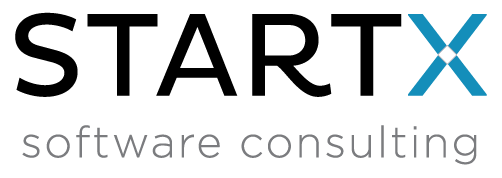Introduction and Context
In rural areas of Peru, monitoring water and sanitation projects has long been a major challenge. The Rural Water and Sanitation Program (PIASAR), implemented by the National Rural Sanitation Program (PNSR) under the Ministry of Housing, Construction and Sanitation of Peru and financed by the Inter-American Development Bank (IDB), faced significant barriers to ensure effective oversight of projects distributed across the country.
Supervising projects in rural communities—often without internet access—was a complex task that required:
- Expensive logistics
- Intense coordination among stakeholders
- Long-distance travel by supervisors
- Paper-based forms and photos that took weeks to report
Without real-time access, accumulated delays made it difficult for the IDB and PIASAR to validate progress, allocate resources, and make timely decisions.
Before CaptuData
- Supervision relied on manual processes.
- Physical reports took up to 21 days to be reflected in central systems.
- Lack of connectivity and timely data updates limited the ability to respond to critical issues.
“With CaptuData, we reduced that 21-day delay to just one week, enabling faster and more accurate decisions.”
— Carlos Cisneros, PIASAR
Who is the Inter-American Development Bank (IDB) in Peru?
The IDB is one of the main sources of financing for economic, social, and institutional development in Latin America and the Caribbean. In Peru, it works closely with the government and other institutions to support projects that promote sustainable growth and social inclusion.
The IDB provides technical assistance, strengthens institutional capacity, and funds programs that improve quality of life, particularly in critical sectors such as infrastructure, health, education, water and sanitation, rural development, and government modernization.
What is the PIASAR Program?
PIASAR is a program funded by the IDB and executed by the PNSR of the Ministry of Housing, Construction and Sanitation (MVCS). Its main objective is to improve sanitary and environmental conditions in prioritized rural areas by closing the gap in water and sanitation coverage.
PIASAR seeks to:
- Expand water and sanitation services in rural population centers.
- Promote sustainable service management by strengthening Regional Housing Directorates (DRVCS), Municipal Technical Areas (ATM), and Water and Sanitation Boards (JASS).
- Encourage proper service use through sanitary and environmental education for families.
- Support MVCS in regulation, planning, and technical assistance in water and sanitation.
The program significantly contributes to closing infrastructure gaps in alignment with the Sustainable Development Goals (SDGs).
Critical Challenges Identified
The limitations of the previous model compromised effective supervision:
- Manual Monitoring: Inspectors traveled with physical forms, causing delays and data loss. Observations were often only recorded on paper, with no immediate digital backup.
- Risk in Decision-Making: Without real-time visibility, resource planning was reactive, exposing the program to inefficiencies.
- Lack of Transparency: Reports lacked geo-referenced evidence, making it difficult to confirm if personnel were actually on-site. This created uncertainty around data reliability.
“Before, it was hard to know if the reported progress actually matched what was happening in the field.”
— Carlos Cisneros, PIASAR
CaptuData Implementation
The transformation began with a pilot across 10 rural projects. The phased implementation allowed for validating CaptuData in low-connectivity environments. It introduced capabilities to capture visual field evidence—even offline—which syncs automatically once the signal is restored.
Supervisors were trained to use the mobile app, making it easier to document progress. Even in remote areas, they could record critical information, which later synced when connectivity resumed.
At the Virgen del Carmen project, CaptuData enabled documentation of each progress phase with geolocated photos and real-time reporting. This improved transparency and coordination with the local community.
“Now we know exactly what condition the works are in, who was there, and what was done—right from a centralized dashboard.”
— Carlos Cisneros, PIASAR
Results
CaptuData brought tangible benefits to PIASAR:
- Time Reduction: Reports that used to take 21 days now take just one week.
- Extended Supervision: 109 PIASAR I and 167 PIASAR II projects monitored simultaneously.
- Real-Time Audits: Both IDB and PIASAR-PNSR can view progress at any time.
- Transparency and Traceability: Synced images and reports prevent tampering and ensure clear accountability.
At San Marcos de Rocchac, CaptuData enabled constant monitoring, supporting technical documentation and tracking community agreements, which accelerated IDB validations.
“The ability to access geo-referenced information in real time not only improved monitoring but also strengthened transparency for the IDB.”
— Carlos Cisneros, PIASAR
Additionally, under PIASAR’s sustainability component, all hired consultants are now required to use CaptuData to monitor their on-site presence and service execution.
Scalability and Future Vision
CaptuData’s success in PIASAR has inspired a broader vision: replicating this model in other IDB projects across Peru and Latin America. The ability to audit infrastructure projects without being physically present is a strategic advantage for managing rural development.
“It would be ideal to replicate this model in other water and sanitation projects—it allows you to audit every detail remotely.”
— Carlos Cisneros, PIASAR
Carlos emphasized that CaptuData is a replicable model for other programs, offering cost-efficient operations and building trust in the field through remote auditing and reliable data.
Conclusion
CaptuData’s implementation in PIASAR marks a major step in modernizing rural project monitoring. With real-time data access, visual field evidence, and remote auditing capabilities, it has redefined supervision standards.
CaptuData didn’t just modernize field monitoring—it proved that technology is key to transparency and efficiency in rural projects. With its ability to ensure traceability, support remote oversight, and streamline planning, CaptuData is setting a new benchmark.
Want to learn how CaptuData can transform your field project monitoring?
Schedule a meeting with our team and discover the next step in smart supervision.


